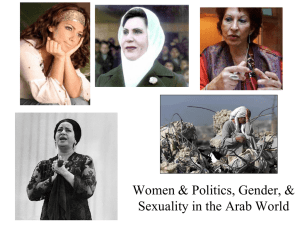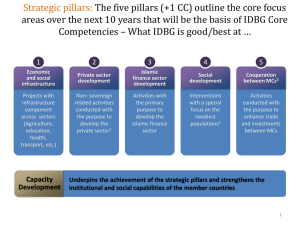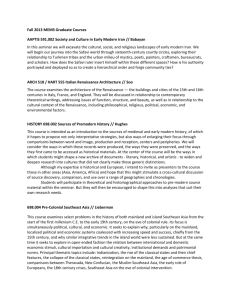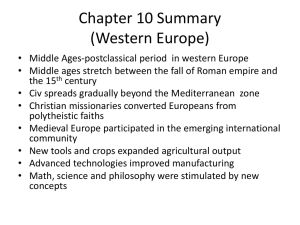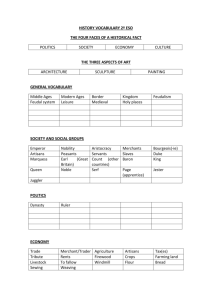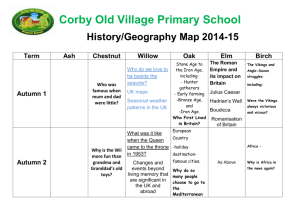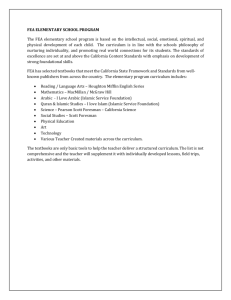Further particulars The College is looking to establish a three
advertisement
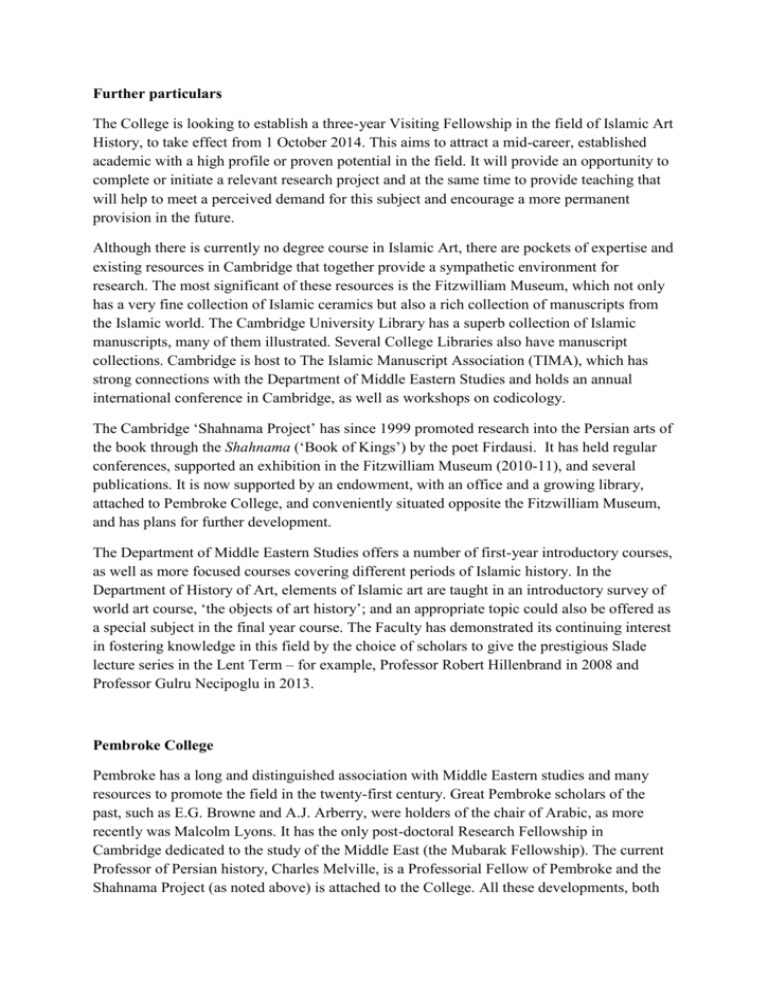
Further particulars The College is looking to establish a three-year Visiting Fellowship in the field of Islamic Art History, to take effect from 1 October 2014. This aims to attract a mid-career, established academic with a high profile or proven potential in the field. It will provide an opportunity to complete or initiate a relevant research project and at the same time to provide teaching that will help to meet a perceived demand for this subject and encourage a more permanent provision in the future. Although there is currently no degree course in Islamic Art, there are pockets of expertise and existing resources in Cambridge that together provide a sympathetic environment for research. The most significant of these resources is the Fitzwilliam Museum, which not only has a very fine collection of Islamic ceramics but also a rich collection of manuscripts from the Islamic world. The Cambridge University Library has a superb collection of Islamic manuscripts, many of them illustrated. Several College Libraries also have manuscript collections. Cambridge is host to The Islamic Manuscript Association (TIMA), which has strong connections with the Department of Middle Eastern Studies and holds an annual international conference in Cambridge, as well as workshops on codicology. The Cambridge ‘Shahnama Project’ has since 1999 promoted research into the Persian arts of the book through the Shahnama (‘Book of Kings’) by the poet Firdausi. It has held regular conferences, supported an exhibition in the Fitzwilliam Museum (2010-11), and several publications. It is now supported by an endowment, with an office and a growing library, attached to Pembroke College, and conveniently situated opposite the Fitzwilliam Museum, and has plans for further development. The Department of Middle Eastern Studies offers a number of first-year introductory courses, as well as more focused courses covering different periods of Islamic history. In the Department of History of Art, elements of Islamic art are taught in an introductory survey of world art course, ‘the objects of art history’; and an appropriate topic could also be offered as a special subject in the final year course. The Faculty has demonstrated its continuing interest in fostering knowledge in this field by the choice of scholars to give the prestigious Slade lecture series in the Lent Term – for example, Professor Robert Hillenbrand in 2008 and Professor Gulru Necipoglu in 2013. Pembroke College Pembroke has a long and distinguished association with Middle Eastern studies and many resources to promote the field in the twenty-first century. Great Pembroke scholars of the past, such as E.G. Browne and A.J. Arberry, were holders of the chair of Arabic, as more recently was Malcolm Lyons. It has the only post-doctoral Research Fellowship in Cambridge dedicated to the study of the Middle East (the Mubarak Fellowship). The current Professor of Persian history, Charles Melville, is a Professorial Fellow of Pembroke and the Shahnama Project (as noted above) is attached to the College. All these developments, both historical and current, provide a firm basis of expertise and resources to ensure Pembroke’s commitment to sustaining a leading position in the field of Islamic art. The Visiting Fellow in Islamic Art The position is conceived as jointly associated both with the Department of Middle Eastern Studies and the Department of History of Art, and the Visiting Fellow will be expected to provide lectures that can be either followed by students in both departments towards their degrees, or more practically contribute teaching separately to meet the more specific needs of each department. Enthusiasm for promoting the subject is the chief quality desired of the Visiting Fellow, but it is intended that there will be regular opportunities to share the results of the research undertaken by offering teaching in both departments. In History of Art this is likely to be, in one of the two main teaching terms, via a weekly two-hour lecture and an hour’s supporting seminar. In Asian and Middle Eastern Studies the expectation is that the Visiting Fellow will contribute ten hours of teaching, via lecture or seminar, in the course of the academic year. Details of teaching currently offered in both departments are available on request. While the Islamic world – excluding its current very real existence in Europe and America – stretches from North Africa to Malaysia, the Visiting Scholarship is intended to focus on the central Islamic lands of the Arab world, Turkey, Iran, Central Asia and north India/Pakistan. Within this wide area, some of the topics of most interest to both Departments include: 1. Medieval art: Islamic art in historical context; religious and secular art; the impact of Islamic art and architecture in medieval Western Europe, including textiles, ceramics, glassware and other decorative arts; the development of research and teaching in medieval Spanish and Italian art and the art of the Crusader states; the intellectual, scientific and visual legacy of the Arab world. 2. Post-medieval art: including Ottoman Turkish, Safavid Persian and Mughal Indian work; links between Islam and Western art and architecture, e.g. through Venice and the Italian city states; notions of and attitudes towards the exotic in Western European art between the Middle Ages and the nineteenth century, and the impact of the West on Islamic art &architecture; Orientalist art, fashions. 3. Manuscripts and decorative arts: the patronage and production of manuscripts; codicology; the role of manuscripts in the growth of Western scholarship on the Muslim world, the formation of the great collections of Islamic books, museum studies and art as an investment. The successful candidate will be elected to a Bye-Fellowship at Pembroke College. As a ByeFellow he or she will enjoy full Fellows’ dining rights (seven free meals at High Table per week) and membership of the Senior Parlour. In addition he or she will have access to the library and office of the Shahnama Project, and the College will provide generous assistance with accommodation.

